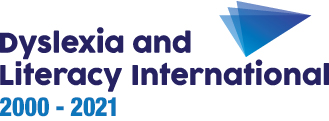Labelling is a delicate and difficult issue which has to be handled with skill. There are pros and cons.
Be aware that some parents are very resistant to having their child ‘labelled’ and the stigma around the label of dyslexia should not be underestimated especially in countries where it is still categorised as a ‘handicap’.
There are emotional consequences in being labelled ‘dyslexic’ that can have lasting negative effects.
ACTIVITY 13
First discuss with your course partner and then draw up a list of ‘advantages’ and ‘disadvantages’ of labelling.
Next look at these testimonies to see if you have covered the points or if you can add any.
‘I was seven when I was considered as having learning difficulties because of not keeping up with reading and writing. Nobody really explained to me what was going on. They merely said I had to visit a doctor, making it sound far more dramatic than it was.
I can still remember the circumstances of the early visits: a lot of tears and doubt about myself and everyone else, not least my mother. Incidentally, I overheard a conversation between the medic and her. Then in desperation, I vowed to myself that I would start ‘acting’ as if I was a bit loony and that ‘they’ would never find out about the real me.’
André
Sequence 1
Sequence 2
Sequence 3
Sequence 4
Sequence 5
Sequence 6
Sequence 7
Sequence 8
The testimony and clips show how important it is to be objective and not be over-dramatic in front of child and parents.
When speaking with the parents whose child has been diagnosed as having dyslexia, it is a good idea to start the interview by talking about the positive aspects of dyslexia – creativity, inventiveness and imagination.
Make it clear to the parents that you are their ally and that much can be done by taking a positive attitude and collaborating with the school authorities and all concerned.
Parents should know that where dyslexia is officially recognised as a ‘disability’ their child may have the right to extra help, extra time in exams and a computer.
It is advisable to let them discover for themselves what benefits may be available through their local education authorities as many parents resist the idea of their child coming under the heading of ‘disabled’ to gain these benefits.
Be aware of the fact that labelling a child as having dyslexia may induce the parents to lower their expectations for the child – to think he or she will not be able to cope and that they should be over-indulgent and not be too hard on him or her.
However, parents are often relieved to finally be able to put a word to ‘something that was going wrong’ without knowing what it was.
When speaking with children who have been diagnosed officially as having dyslexia, it is a good idea to immediately reassure them that you, as teacher, will be on their side. Together you will face any difficulty in reading, writing and spelling.
Some children will be quite upset. They see themselves as outsiders and no longer belonging to the group.
Conversely, other children and/or their parents will be comforted and relieved by the labelling.
For those children suffering from loss of self-esteem, owing to continuous difficulties at school and the negative reactions of their classmates and even their teachers, the diagnosis could well be re-assuring.


